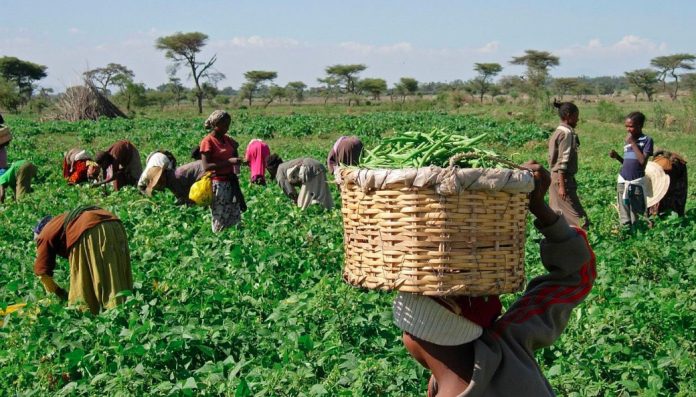
News in brief: The World Bank’s Nigeria COVID-19 Action Recovery and Economic Stimulus (N-CARES) program distributed agricultural inputs and production assets to 6,062 farmers in Lagos State. The initiative aims to support livelihoods, enhance food security, and provide grants to vulnerable households and businesses impacted by the pandemic, and align with the state government’s goals.
In Lagos State, the World Bank, through the Nigeria COVID-19 Action Recovery and Economic Stimulus (N-CARES) programme, provided agricultural inputs and production assets to 6,062 farmers.
The state’s programme coordinator, Jonathan Obayemi, mentioned that the recipients were from 20 local government areas and 37 local council development areas of Lagos. He added that this is the second cyle of disbursing aid under the programme.
The first cycle had seen 2,000 farmers benefit from agricultural inputs while 2,025 received production and processing assets.
According to the World Bank, the project is aimed at expanding access to livelihood support and food security services. It is also a vehicle for providing grants for poor and vulnerable households, farmers and micro and small enterprises (MSEs) businesses.
This project became a necessary one due to the COVID-19 crisis and its economic impact on Nigerians. It supports existing government interventions at the state level.
Obayemi, at the disbursement event held over the weekend, expressed hope that the inputs will help small scale farmers overcome production and productivity challenges. He added that it is timely because it aligns with Governor Babjide Sanwo-Olu’s electoral promises and comes at a time when the price of fuel is high, thanks to subsidy removal.
The agricultural inputs include maize seeds, cassava cuttings, vegetable seeds, fertiliser, herbicides, insecticides, broiler chicks, poultry feeds, fish juveniles, fish feeds and animal medication for 2,652 farmers. Meanwhile, the remaining 3,410 farmers got production and processing assets like pig weaners, point of lay birds, sheep and goat weaners, water pumps and hoses, battery cages, fishing nets, motorised sprayers, smoking kilns and grinding machine.
The next part of the programme involves agricultural infrastructure support such as culverts, walkways, roads rehabilitation and small scale irrigation facilities for 2,299 farmers.
In addition, it will oversee water and sanitary facilities upgrades in nearly 50 wet markets in the state. Which is more than the 20 wet markets it covered in the first development cycle.
As the World Bank has said, the project will be a success if it successfully increases cash transfers and livelihood support to poor and vulnerable households while increasing food security for them and helping MSEs recover from COVID blow.


